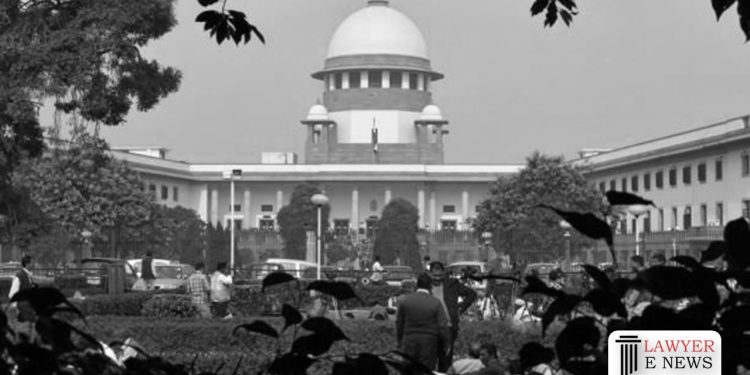Supreme Court Convicts Accused in Lajpat Nagar Bomb Blast Case: Guilt Proven Based on Circumstantial Evidence

In a groundbreaking ruling, the Supreme Court of India has delivered a landmark judgment, convicting the accused in the Lajpat Nagar bomb blast case. The apex court found the accused guilty based on strong circumstantial evidence, establishing their involvement in criminal conspiracy and the theft of a car used in the blast. The judgment emphasizes the significance of meticulous investigation and effective prosecution in cases of national security.
The bench, comprising of Justice B.R. Gavai, Justice Vikram Nath, and Justice Sanjay Karol, reiterated that the prosecution successfully proved the guilt of the accused individuals. Justice Gavai stated, “The cumulative effect of the circumstances established against the accused persons vividly highlights their active participation in the planning and execution of the bomb blast at Lajpat Nagar.”
The judgment underscored the weight of circumstantial evidence, including the pointing out of shops for the procurement of incriminating materials. The court firmly held that the High Court erred in reversing the findings, stating, “The admission of the pointing-out memo and signed blank papers does not contradict the evidence presented.” The identification of the accused individuals by witnesses, corroborated by documentary evidence, further bolstered their involvement.
Addressing the issue of arrests, the court declared, “The arrest of the accused persons cannot be considered an incriminating circumstance, as no incriminating material was recovered at the time of arrest.” It stressed the importance of substantive evidence to establish guilt beyond a reasonable doubt.
Regarding the theft of the car, the court upheld the conviction under Section 411 of the Indian Penal Code (IPC) for the offense of car theft. The recovery of number plates, the stepney, and the pointing out of the shop for the duplicate key and fake number plates substantiated the involvement of the accused.
In terms of sentencing, the court acknowledged the severity of the offense, which resulted in loss of life and injuries to numerous individuals. Justice Nath remarked, “The actions of the accused persons warrant conviction under Section 411 of the IPC, and taking into account the mitigating circumstances, we sentence them to life imprisonment without the possibility of remission, extending to natural life.”
The judgment also highlighted concerns about the delay in the trial process and stressed the need for expeditious handling of cases related to national security. The court expressed disappointment over the lack of urgency and attention in dealing with the case, particularly given its impact on innocent lives and livelihoods.
This landmark judgment sets a precedent for the prosecution of similar cases involving criminal conspiracies and acts of terrorism. The conviction of the accused serves as a reminder of the judiciary’s unwavering commitment to upholding justice and safeguarding national security.
Date of Decision: 6th July 2023
MOHD. NAUSHAD vs STATE (GOVT. OF NCT OF DELHI)






